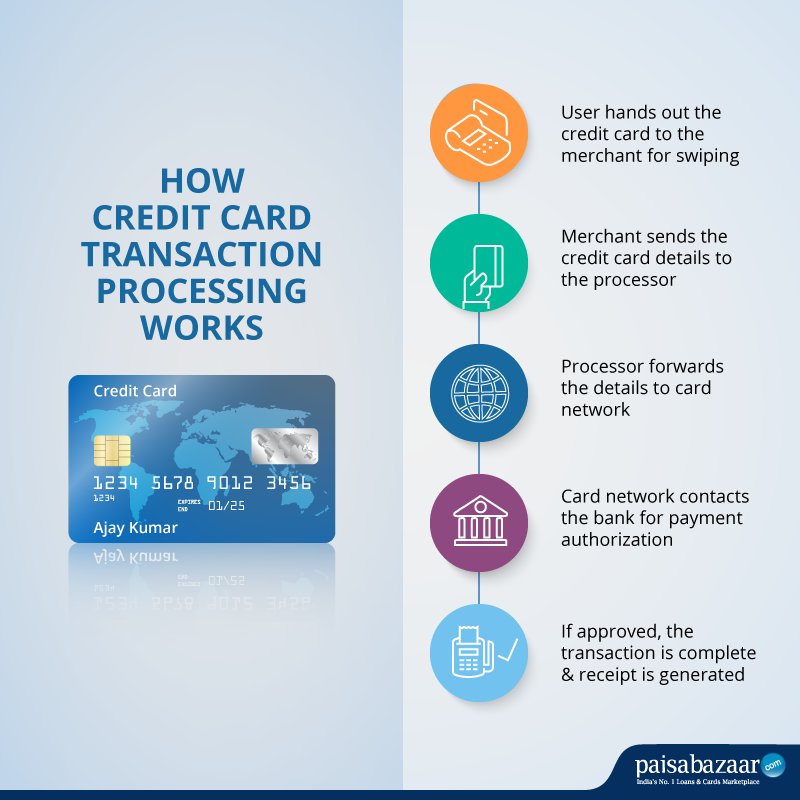When it comes to managing finances, credit cards have become an indispensable tool for consumers in India. With the convenience they offer, it’s no wonder that credit cards have gained immense popularity in the country. But how exactly do credit cards work in India? Let’s delve into the intricacies of credit cards and understand the mechanics behind them.

Understanding Credit Cards
A credit card is a plastic card issued by a financial institution that allows the cardholder to borrow funds to make purchases, pay for services, or withdraw cash. The cardholder is provided with a line of credit, which is essentially a short-term loan from the card issuer. The cardholder is required to repay the borrowed amount, along with any applicable interest and fees, within a specified period.
Types Of Credit Cards
In India, there are various types of credit cards tailored to different consumer needs. These include:
- Standard Credit Cards: These are basic credit cards that offer a standard set of features and benefits.
- Rewards Credit Cards: These cards allow cardholders to earn rewards points or cashback on their purchases.
- Travel Credit Cards: Ideal for frequent travelers, these cards offer travel-related benefits such as air miles, lounge access, and travel insurance.
- Co-branded Credit Cards: These cards are offered in partnership with a specific brand or retailer and provide specialized benefits related to that brand.
- Secured Credit Cards: These cards are backed by a security deposit and are designed for individuals with limited or poor credit history.
How Credit Cards Work
When a consumer applies for a credit card, the issuer evaluates the applicant’s creditworthiness based on factors such as credit score, income, employment status, and existing debt obligations. Upon approval, the cardholder is assigned a credit limit, which represents the maximum amount they are allowed to borrow using the card.
When the cardholder makes a purchase using the credit card, the card issuer pays the merchant on behalf of the cardholder. The cardholder is then required to repay the borrowed amount to the issuer within the billing cycle. If the cardholder fails to repay the full amount, interest is charged on the outstanding balance.
Credit Card Billing Cycle
The billing cycle is the period between two consecutive credit card statements. During this cycle, the cardholder can make purchases and incur charges using the credit card. At the end of the billing cycle, the card issuer generates a statement detailing the transactions made during the cycle, the total amount due, the minimum payment required, and the due date for payment.
It’s important for cardholders to review their credit card statements regularly to ensure the accuracy of transactions and to monitor their spending. The due date for payment is a crucial aspect, as failing to make the minimum payment by the due date can result in late fees and interest charges.
Interest And Fees
When a cardholder carries forward a balance from one billing cycle to the next, the issuer applies an interest rate to the outstanding amount. The interest rate, often referred to as the Annual Percentage Rate (APR), varies depending on the card issuer and the type of credit card. In addition to interest, credit cards may also entail various fees such as annual fees, late payment fees, cash advance fees, and foreign transaction fees.
Security and Fraud Protection
Credit card issuers in India prioritize the security of cardholders’ transactions and provide robust fraud protection measures. Many credit cards come equipped with EMV chip technology, which enhances security and reduces the risk of counterfeit fraud. Moreover, cardholders are often offered zero-liability protection, meaning they are not held responsible for unauthorized transactions made on their cards.

Building Credit History
One of the significant advantages of using a credit card responsibly is the opportunity to build a positive credit history. By making timely payments and maintaining a low credit utilization ratio, cardholders can improve their credit score, which is crucial for accessing loans, mortgages, and other financial products in the future.
Conclusion
Credit cards have undoubtedly transformed the way consumers manage their finances in India. With their flexibility, convenience, and array of benefits, credit cards offer a valuable financial tool for individuals. However, it’s essential for cardholders to use credit cards responsibly, understand the terms and conditions, and manage their finances prudently to make the most of this financial instrument.
As the credit card landscape continues to evolve, staying informed about the workings of credit cards in India will empower consumers to make informed financial decisions and leverage the benefits offered by these ubiquitous plastic cards.
So, whether you’re considering applying for your first credit card or looking to maximize the rewards on your existing card, understanding how credit cards work in India is the key to making the most of this financial tool.

Ahmed bin Rashid, a seasoned travel enthusiast and visa process expert and the successful Businessman in Dubai. With an LLB from the University of Bolton in 2015, he combines his legal knowledge with his passion for exploration, offering invaluable insights into Business formation and visa processes around the globe. Follow Ahmed’s captivating journeys and expert advice to embark on your unforgettable adventures & Business.

